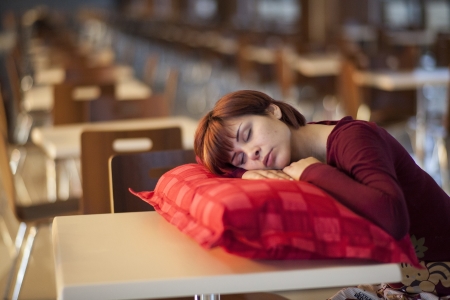Exercise more - you will improve your sleep

Who wouldn't want to wake up every morning feeling refreshed and rested, bursting with enthusiasm and ready to tackle to a new day? Quite a lot of people may still have a long way to go, as the amount of sleep is almost constantly falling short when the real need or sleep rhythm is out of sync with the rhythm of the surrounding world.
Why should we value our sleep more?
1. Our brain literally begs for the cleansing effect of sleep. During sleep, cerebrospinal fluid flushes brain cells and intercellular spaces and transports harmful waste products away. In the stages of deep sleep - especially in brain areas important for memory and learning - neurons are shaped plastically and the connections between them become stronger, new neurons are formed (possibly even in adulthood) and on the other hand unnecessary synapse connections are pruned.
2. Our muscles are also grateful for the restorative sleep, because during sleep, constructive i.e. anabolic hormones will be secreted by the revived brain so tissue damage is repaired and muscle glycogen stores are also restored.
3. The sleep we get plays a key role in immune defense and staying healthy. Chronic lack of sleep also exposes you to infections and illnesses. Did you know that already 2-3 days irregular sleep weakens the immune system, nervous system, and hormonal function?
Is there a connection between exercise and sleep?
Little amount of leisure time exercise has been found to be associated with sleep disorders. Regular exercise has again been found to be connected to undisturbed sleep.
How does exercise improve sleep?
Exercise speeds up falling asleep, lengthens the duration of the deep sleep phase, lengthens the duration of total sleep, and shortens the stage of REM sleep, when we see most of our dreams. Exercise also improves daytime alertness, regularizes sleep patterns, and seems to reduce fatigue during shift work.
What kind of exercise, with what kind of dose and timing would be most favorable in terms of sleep?
There is no clear answer to this yet, but brisk exercise lasting more than an hour has been found to clearly promote sleep. Moving in the fresh air can help with insomnia, for example, you should try jogging, or an evening walk before 8 p.m. Traditionally, it has been recommended to avoid heavy exercise at least a couple of hours before going to bed. However, a recent research review found, on the contrary, that strenuous exercise before going to bed was associated with deeper sleep, falling asleep faster and fewer awakenings during the night (with healthy people). However, vigorous exercise was found to have more beneficial effects on sleep in younger and older age groups than strenuous exercise in another research review.
The best thing is to try out what kind of exercise and at what time improves your own night's sleep.
Wishing you sweet and restorative sleep
Outi Atkin
Voimaantumispaikka Zona

